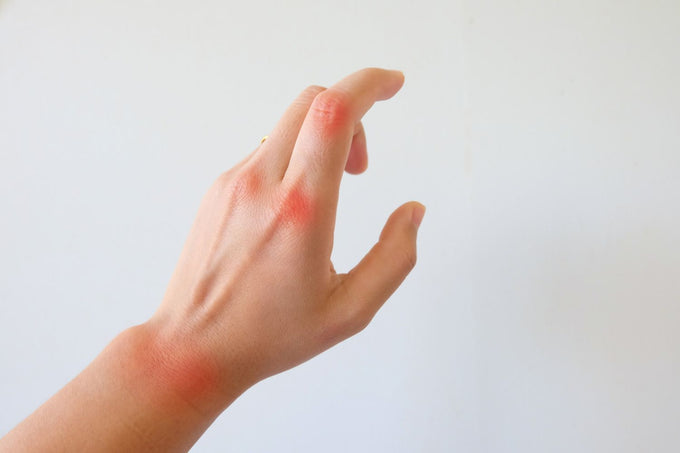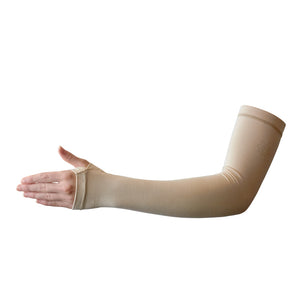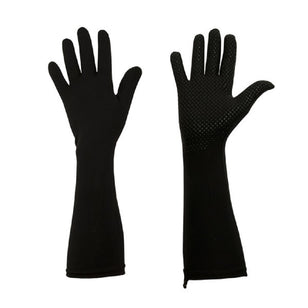Are Your Rheumatoid Arthritis Meds Causing Sun Sensitivity?

Does this resonate: your rheumatologist prescribed medications to help control your rheumatoid arthritis (RA), but after being exposed to sunlight your skin turns red?
Could your RA drugs be causing sun sensitivity? Today, UV Skinz goes over frequently asked questions about RA medication and how it could cause sun sensitivity.
What Is Rheumatoid Arthritis
According to the Centers for Disease Control and Prevention, Rheumatoid Arthritis (RA) is a chronic autoimmune disorder that can cause painful, swollen joints. It can also damage multiple organs, body systems, nerves, and blood vessels in rare cases. What happens is that the body's immune system starts to attack healthy cells in your body by mistake causing inflammation and swelling in those areas.
Like other autoimmune conditions, RA can’t be cured but treatment can improve symptoms and slow disease progression. RA can start at any age, affects 1.3 million Americans, and most often targets females.
What Is Sun Sensitivity and How Does It Relate to RA Medication?
Did you know that medication for RA can lead to skin sensitivity and make you more sensitive to sun exposure? According to the Arthritis Foundation, RA is not affected by sunlight, but some medications commonly used to treat RA can lead to reactions such as rashes or sunburn when exposed to ultraviolet (UV) light.
There are three classes of drugs that rheumatologists commonly prescribe for RA. These drug classes include NSAIDS, DMARDS, and corticosteroids. Some medications in the NSAID and DMARD drug classes may increase skin sensitivity to UV light, also called photosensitivity.
What Are Some Symptoms of Sun Sensitivity?
If you experience any of the following while out in the sun, you may have sun sensitivity:
- Redness
- Itching
- Swelling
- Blisters
- Peeling
Types of Rheumatoid Arthritis Meds that Can Cause Sun Sensitivity
NSAIDS (Non-Steroidal Anti-Inflammatory Drugs)
- Naproxen
- Ibuprofen
DMARDS (Disease-Modifying Anti-Rheumatic Drugs)
- Hydroxychloroquine
- Methotrexate
- Sulfasalazine
To be safe, ask your rheumatologist if any of your RA medications may cause photosensitivity. As with any drug you take, be sure to check the label and packaging for sun precautions. Be aware that not everyone who uses these medications will have an excessive skin reaction to UV light.
Sun Safety When Taking RA Drugs With Potential UV Side Effects
When taking UV-sensitive drugs, you’ll need to maximize sun protection to avoid sunburn, sun rashes, skin aging, and skin cancer.
Take the following actions to minimize your chance of photosensitive skin:
- Avoid the outdoors between 10 a.m. and 4 p.m. as much as possible and seek shade when available.
- Cover your arms, legs, and torso with tight-weave fabrics or UPF 50+ clothing when outdoors.
- Use a broad-spectrum sunscreen with an SPF of 30 or higher (and don't forget to reapply).
- Select a tightly-weaved or UPF 50+ sun hat to protect your scalp, ears, and face,
- Supplement your sun gear with accessories like sun sleeves, sun gloves, and UPF neck shields.
- Wear wraparound sunglasses with 100% UV protection to keep your eyes and vision safe.
How to Avoid Sun Sensitivity with RA Medication
Be sure to speak to your healthcare provider about your options for RA medication to see if you can find a solution that doesn't cause sun sensitivity. You can also see if there are any alternative therapies for RA.
Taking medications that may cause photosensitive skin doesn’t mean you have to stay inside during the day. It just means that you need to take precautions when going outside in the sun. Wear sunscreen and put o UPF 50+ clothing to keep your sun sensitivity at bay.
UV Skinz can help you feel confidently protected with UPF 50+ clothing and accessories you'll love.












